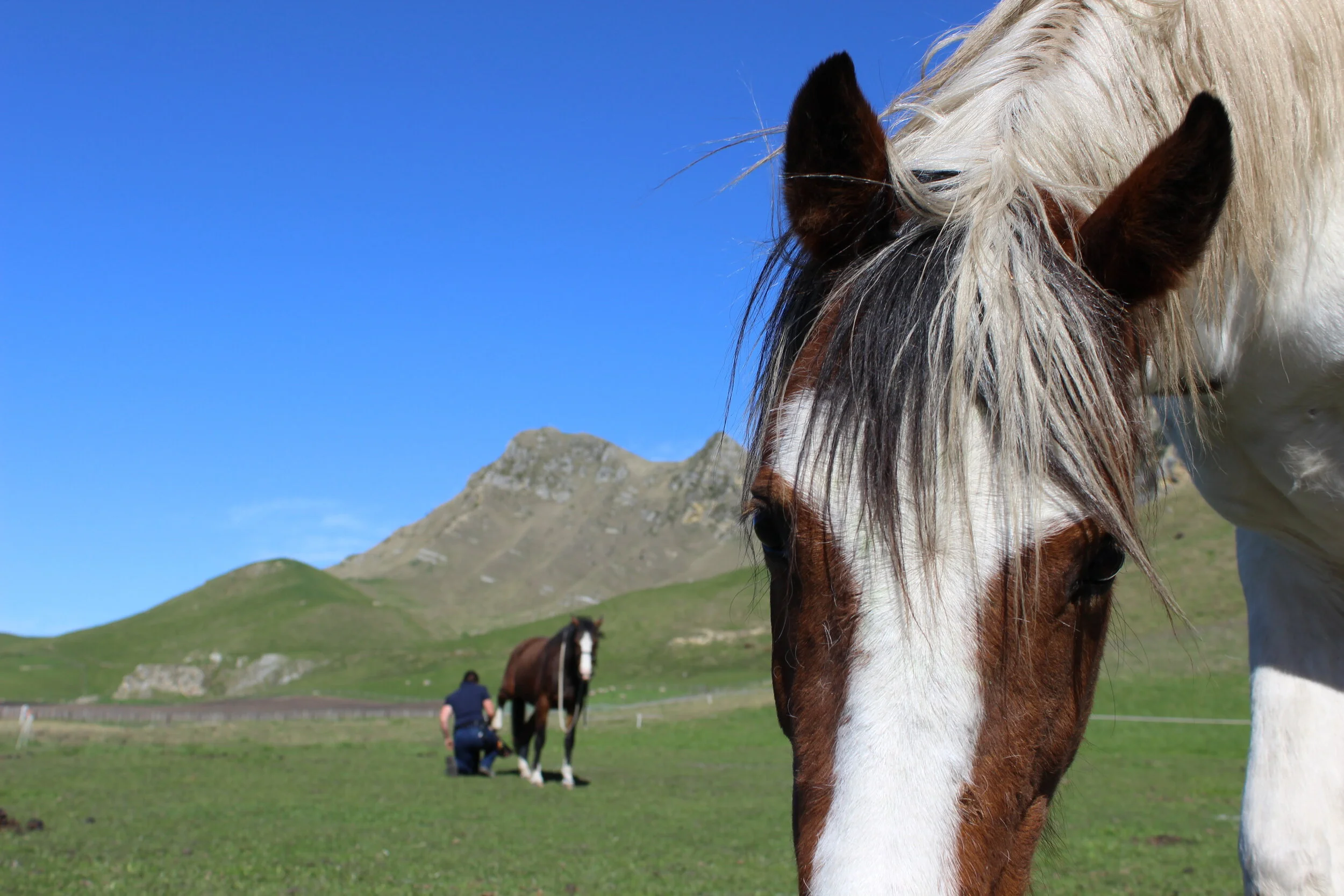“When did your horse last have his teeth done?”
This is one of the first questions I ask when I meet a new horse, whether I am there for hooves or bodywork. Dental comfort, function and balance has such a huge affect on your whole horse.
When does your horse need to see a dentist?
There is all sorts of advice out there, and one I hear often is “your horse doesn’t need to see a dentist until they have a bit in their mouth”, or “until they are in work”.
But what is dentistry really about?
Well firstly it’s about function, the horse being able to grind their food properly - the first stage of digestion. If the horse can’t grind up the food adequately they won’t be able to digest it properly and get the most out of it.
The next part of function is being able to chew in both directions, the lower jaw moves in a sort of circular motion, not just up and down. If the jaw can only move to one side this will have an effect on the entire horse and the way they can move.
Balance - unbalanced teeth lead to an unbalanced TMJ (temporomandibular joint, the hinge joint that attaches jaw to skull, situated between the eye and ear), which leads to an unbalanced horse.
Comfort - if you have ever had a tooth ache you’ll know its hard to concentrate on anything else! Horse’s can have all sorts of dental pain; lacerations from sharp teeth, cracked teeth, foreign objects lodged in there, and so much more. But horse’s are incredibly stoic, and they can’t just tell us.
Not one of these is about having a bit in their mouth or being ridden. Dental work is basic healthcare!
So when should your horse see a dentist and how often?
I like to start with young horses, as young as one year old. They may not actually have any work done, or even have the gag on, but get your trusted dentist to check out their mouth. Babies have a lot going on in there and its great to see how things are developing.
From there your horse should see a dentist every year at least. Your dentist will be able to advise if more often might be necessary.
Young horses have big changes happening in their mouth, new teeth coming in and caps coming off, so getting them checked every 6 months can make sure that everything is progressing how it should.
Older horses should also have their teeth checked every 6 months. They may not necessarily be “done” (we want to conserve tooth) but they should at least be checked. Older horses start to get gaps between their teeth which can cause gum and tooth problems.
Before you send your young horse away to be started. Your horse doesn’t need to be “mouthed” to have the dental speculum (gag) on! (Whatever “mouthed” even means…) You want your horse’s first experience of the bit and riding to be as comfortable as possible, so make sure their teeth are up to date.
When you get a new horse. Even if the previous owner said “they had them done”. Get your own trusted dentist out to check them, you want to know whats going on in there!
The mark of a good Equine Dentist
I don’t want to go into types of dentistry or tools used. But here are a few things that I find good dentists do.
What is the person’s qualification? Are they actually qualified? Never be afraid to ask directly what someone’s qualifications are and a bit about their school of thought and philosophies. This goes for any equine professional you get out to work on your horse!
This is a big one for me. Do they get you to put your own arm in there and have a feel of your horse’s teeth before and after? We can’t see our horse’s teeth the way we can see our horse’s feet and bodies, get in there and feel what has been done - all the way to the back molars.
Does the dentist explain clearly what is happening in your horses mouth, what they are feeling (and what you are feeling!) and are they happy to answer your questions as they go?
Do they get in there with a torch and a mirror, or just feel? There are some issues that you would not be able to feel, you really have to get in there with a torch - and a mirror is the only way we can see around the back of teeth!
They will check for function as well. Checking incisor balance and testing out the horse’s range of motion, side to side, up and down and grinding surfaces/contact.
They won’t be “the cheapest one you can find”. Don’t skimp on dentistry, it’s well worth getting it right.
Some other thoughts and considerations
My horse “had his teeth done”, but we’re still having issues - but it can’t be teeth because they were done. Was the horse’s mouth thoroughly checked using a torch and mirror? Did you get to feel and see the work done? Was the horse sedated? If not, consider getting another dentist or vet-dentist out and having the horse sedated. Sedation is not always necessary for routine work, but sedation can mean that you can see things that may otherwise be missed. Ask your vet about x-rays. Having the teeth checked off the list, but having them done poorly is unfortunately a story I often hear.
If you horse has had dental issues they will have been compensating and holding tension in the poll, TMJ, hyoid, and through all connected structures - it will have affected their whole body. So scheduling bodywork sessions after dental work can help your horse adjust to the change in his mouth and restore range of motion.
